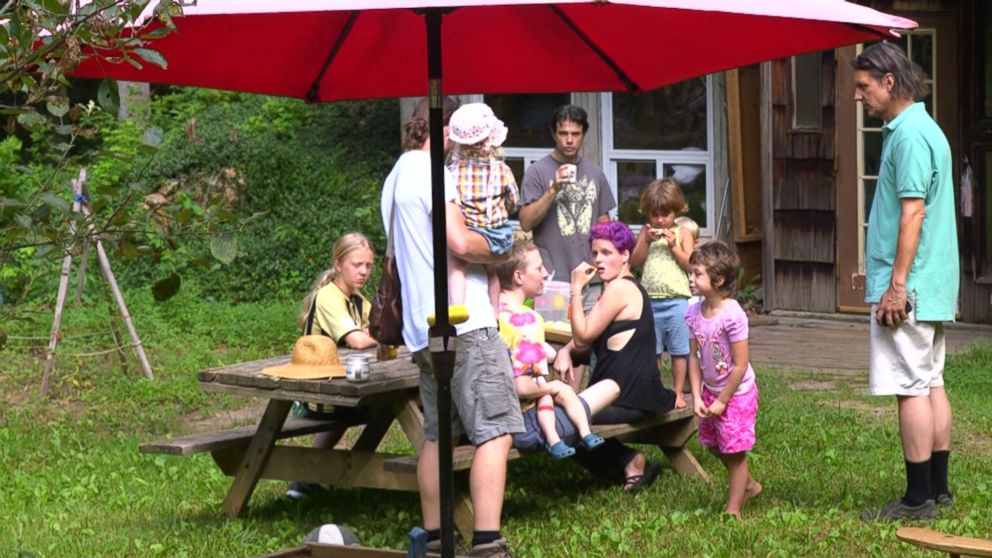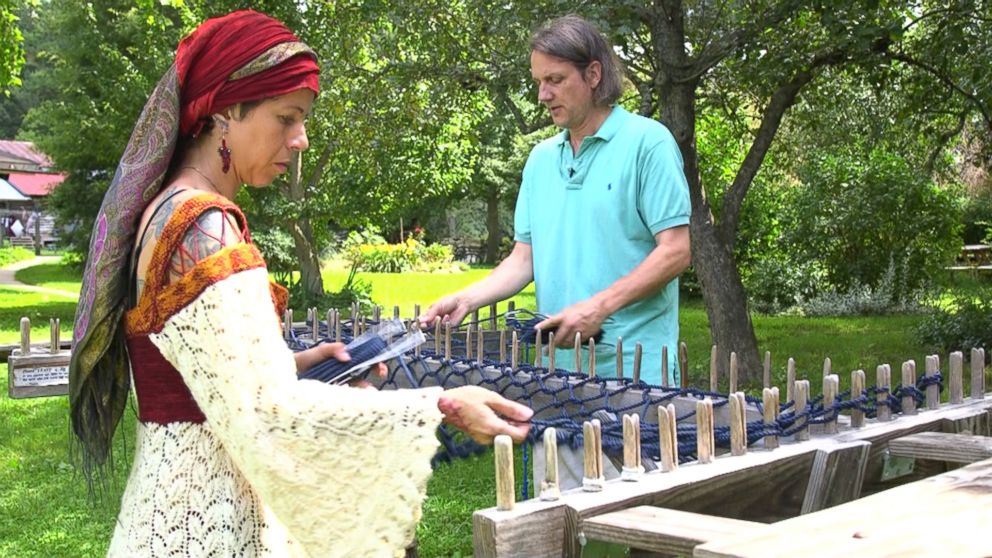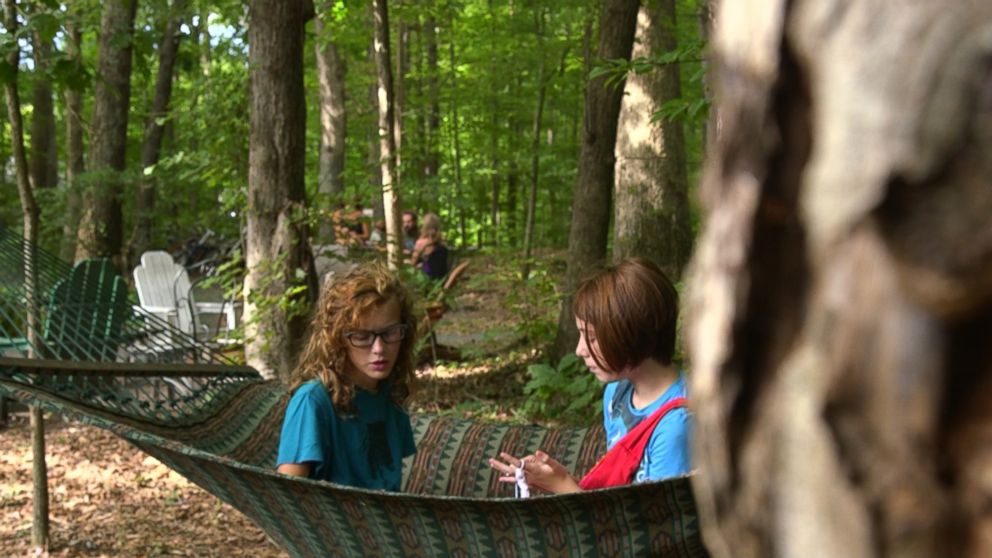Inside Off-the-Grid Virginia Commune Where Everything From Housing to Child Care Is Shared
Ninety-two adults and 13 kids live off of 450 acres of land together.
— -- About 8 miles away from the small town of Louisa, Virginia, a mysterious hidden community is nestled deep in the woods. All the local residents know about it, but few take the time to explore.
The community is called Twin Oaks, a commune where 92 adults and 13 children live on 450 acres. They have Internet, but no television, video games, bank accounts or high-paying jobs. No one is allowed to own a fire arm.
They live off the land, eating the vegetables they grow themselves and sharing everything from clothes to housing to child care.
Watch the full story on "Nightline" tonight at 12:35 a.m. ET

Imani Callen, 22, grew up in that hidden community in the woods, and now that she works in a café in Louisa, she has to straddle two very different worlds.
“I think as a small child it was awesome to live here,” Callen said. “It was fun you had all of these people to hang out with and interact with especially when you want to run wild as a kid.”
The community makes money through making and selling tofu and hammocks that they say gross about $2 million a year and they share income. Adult members earn their keep by working 42 hours a week. Once they become 50, it goes down to one hour a year.
“We get an allowance and that changes from year to year,” Hilda Ott said. “But for things that we want, like chocolate or coffee or whatever we decide.”

When someone in the community needs to run an errand, they check out one of the communal cars from the Twin Oaks’ main office – the residents are not allowed to own a car themselves. All of the cars have vanity license plates to help residents remember which car is theirs when they leave, since they change cars so often.
They call their lifestyle "clever poverty," where each family lives below the poverty line and shares all the resources with each other.
"The big sacrifice you make in living here is you'll never become wealthy," said Keenan Dakota. "I mean you're not going to hit the jackpot and suddenly make it to the top. However you are never going to be poor, your never going to be unemployed, you're never going to lose health care, you're never going to be homeless. It is a trade-off that a lot of people well certainly the people here are willing to make."
Dakota has lived at Twin Oaks for 32 years and his son Rowan was born on the commune. Before moving to Twin Oaks, his name was Daniel Edward “I Lost” McGee. As a former student body president at George Mason University, he said he came to Twin Oaks to give a talk and never left.
“I feel like when I came to Twin Oaks at 23 I kind of retired, you know life is kind of easy,” he said. “There is not that much work to do. It is not that hard to do that work that there is here. I live out in the woods and I totally set my own schedule.”
Dakota lives in a house with 22 other people. “People have small rooms,” he said.
But living in Twin Oaks doesn’t come without sacrifices. At Twin Oaks, which has been in operation for 48 years, decisions, including whether or not you’re allowed to have a child, have to be approved by the community.
“Having a child is not something you can take for granted, that you can just decide to do on your own because you’re not responsible for financing that kid’s upbringing. The entire community is, so the entire community has to make that decision,” said Katheryn Simmons, who has been at Twin Oaks for five years.

While it may not appeal to everyone, for some, this sort of communal living makes a lot of sense. Some of the commune’s residents are single mothers who say they wouldn’t have been able to afford many of the luxuries the commune provides on their own, such as free childcare.
“It’s nice to have a three bedroom house with lots of lovely furniture and big closets and my very own washing machine and all these luxuries and air conditioning but they're nothing compared to the sense of support and sharing, the sense of community,” said Gryphon Corpus.